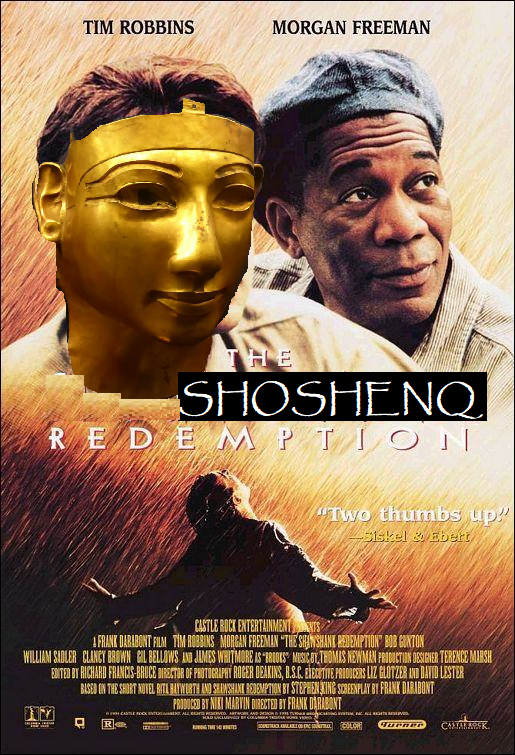Pesach is just around the corner, so let’s talk about the Exodus. In the second part of The Forgotten Kingdom Chapter 6, Israel Finkelstein comments on the other “charter myth” of the northern kingdom: that of the exodus from Egypt and wandering in the desert. We might add the conquest of Canaan.
Unlike the mostly geography-based arguments for dating the Jacob traditions, Finkelstein lists some results from “[r]ecent research on the Pentateuch”, some of which is more controversial than he presents:
- “this narrative had an important status in northern Israel as early as the eighth century B.C.E.”;
- “it contains an ‘inner’ literary history” (this is not so much a real guideline for dating the tradition as a reason to ignore some literary data if they seem to be secondary—fair enough);
- “it was originally independent from, and earlier than, the patriarchal stories”;
- “the two blocks—patriarchs and exodus—were connected by a Priestly author at a relatively late date”, i.e. during or after the Babylonian Exile (sixth century);
- “in the present form the narrative represents a Priestly (or even late Priestly and/or post-Priestly) compilation”.
On point 1:
From the prophecies of Hosea (2:14–15; 9:10; 11:1, 5; 12:9, 13; 13:4–5) and Amos (2:10; 3:1; 9:7), and possibly also from a Kuntillet ‘Ajrud inscription that may refer to the theme of the exodus (Na’aman 2012a), it is clear that the exodus-desert tradition was well known in the northern kingdom in its later days. But what was the source of this tradition? How far back before the eighth century could one trace it?
Finkelstein (2013: 146)
Not very far back, if you ask Finkelstein. He follows scholars who state that there’s nothing in the Exodus traditions that can only reflect an accurate memory from the Late Bronze Age. And since Finkelstein relies on the (supported, to be fair) assumption that scribal activity in Israel only really got going around 800 BCE, he thinks it would be unrealistic for traditions from the thirteenth century or earlier to have survived for that long orally in any significant form. So instead, he identifies the historical kernel of the Exodus in an event we’ve already discussed: “Egyptian intervention in the highlands in the tenth century B.C.E.”

Without detracting from my appreciation for the book as a whole: this is weak. The only element that Shoshenq’s Palestinian campaign shares with the Exodus narrative is “Egypt bad”. Otherwise, I see zero connection between “we were foreigners/slaves in Egypt and left” and “Egyptians came and devastated our country”. Moreover, if this is the basis for the Exodus tradition, I don’t see how it can be older than the patriarchal stories (point 3 above) if the oldest patriarchal material is from the kingdom of Saul (as argued by Finkelstein) and Shoshenq’s campaign put an end to the kingdom of Saul (as also argued by Finkelstein).
If, instead, we play the geography game again, I think one can make a better case for the pre-monarchic, early Iron I (“Judges”) period as the background for the Exodus and desert wandering traditions. Some arguments I can think of:
- The sanctuary at Shiloh has literary connections with both the entry into Canaan under Joshua (i.e., the conclusion of the desert wanderings) and the Ark of the Covenant, maybe the most wilderness-wandering artefact out there. As I learned from Finkelstein, Shiloh was destroyed during the Iron I and never recovered. So these traditions must be older than that. (We could apply this to Gilgal too, but as far as I understand, that site hasn’t been identified.)
- Different biblical sources talk about land in Cis- and Transjordan being conquered from the Amorites. While I don’t think there’s evidence that the historical Amorites were ever that far south, the kingdom of Amurru (in Lebanon) seems not to have survived the Late Bronze Age collapse. The farther you get from the Late Bronze Age, the more any memory of Amorites should have faded.
We can add a couple of linguistic arguments, one well known, the other not so much:
- If the name Moses (mōše) is from the Egyptian root msj ‘to be born’, it shows a *s to š shift that probably took place in the late second millennium BCE.
- The expression ʔṓhel mōʕēḏ ‘(the) Tent of Meeting’ lacks a definite article. This is unexpected for Hebrew of the Iron Age but matches what we know about Bronze-Age Canaanite, suggesting that the term was inherited from the second millennium and may refer to a structure that also originated then. Like the Ark of the Covenant, the Tent of Meeting is peak wilderness material (perhaps even more so).
And of course, there’s the fact that as per Finkelstein, the highlands west of the Jordan were barely inhabited in the Late Bronze Age and then see a bunch of Israelite settlements popping up in the Iron I. This is not impossible to square with a tradition that says “we were somewhere else first and then we came here”.
So without wanting to go full 600,000 Israelites Exodus truther, I do feel like it works much better to see some Israelite immigration event during the Late Bronze Age Collapse or slightly before as the historical background of the Exodus-Wandering-Conquest traditions. Like I said, I find most of Finkelstein’s book really compelling and also fair when it comes to the biblical evidence. In the case of the Exodus, though, I can’t help but suspect that his unwillingness to consider a Bronze Age setting is due to some ideological bias.
Leave a comment